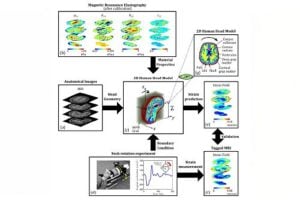Dimitris Giovanis is an assistant research professor in the Department of Civil and Systems Engineering. He is a fellow of the Hopkins Extreme Materials Institute, member of the Center on Artificial Intelligence for Materials in Extreme Environments, the Institute for Data Intensive Engineering and Science, the Johns Hopkins Mathematical Institute for Data Science, and the Data Science and AI Institute. He is also affiliated with the JHU Sports Analytics Research Group.
Giovanis’ research focuses on the development of advanced computational methodologies and tools at the intersection of probabilistic modeling, data science, and physics-informed machine learning, to accelerate and optimize simulation and analysis for scientific discovery and data-informed decision making in science and engineering. A central objective of his work is the creation of digital twins—virtual representations that integrate data and physics-based models—for a variety of complex systems.
Methods developed by Giovanis are applied across a broad range of domains, including materials science (structural ceramics, energetic materials, carbon-based composites, amorphous solids, additive manufacturing), natural hazards (performance-based earthquake/wind engineering, regional hazard modeling, post-wildfire debris flow analysis), health and biomedicine (traumatic brain injury, digital twins of the human heart, epidemic modeling), aerospace engineering (structural and aeroelastic systems), and astrophysics (space weather).
His work is supported by the National Science Foundation, the Department of Energy, and the Defense Advanced Research Projects Agency.
Giovanis earned his five-year diploma in civil engineering, master’s degree in computational mechanics, and PhD—focused on stochastic finite element methods—from the National Technical University of Athens in Greece. Giovanis is a member of the NHERI Simulation Center, the American Society of Civil Engineer’s Engineering Mechanics Institute Probabilistic Methods Committee, the ASCE/EMI Machine Learning Group, the ASCE/EMI Education Group, the Society for Industrial and Applied Mathematics Uncertainty Quantification group, and the Greek Association of Computational Mechanics. He is a licensed Professional Civil Engineer in Greece and is also the assistant coach of the men’s water polo team at JHU.


